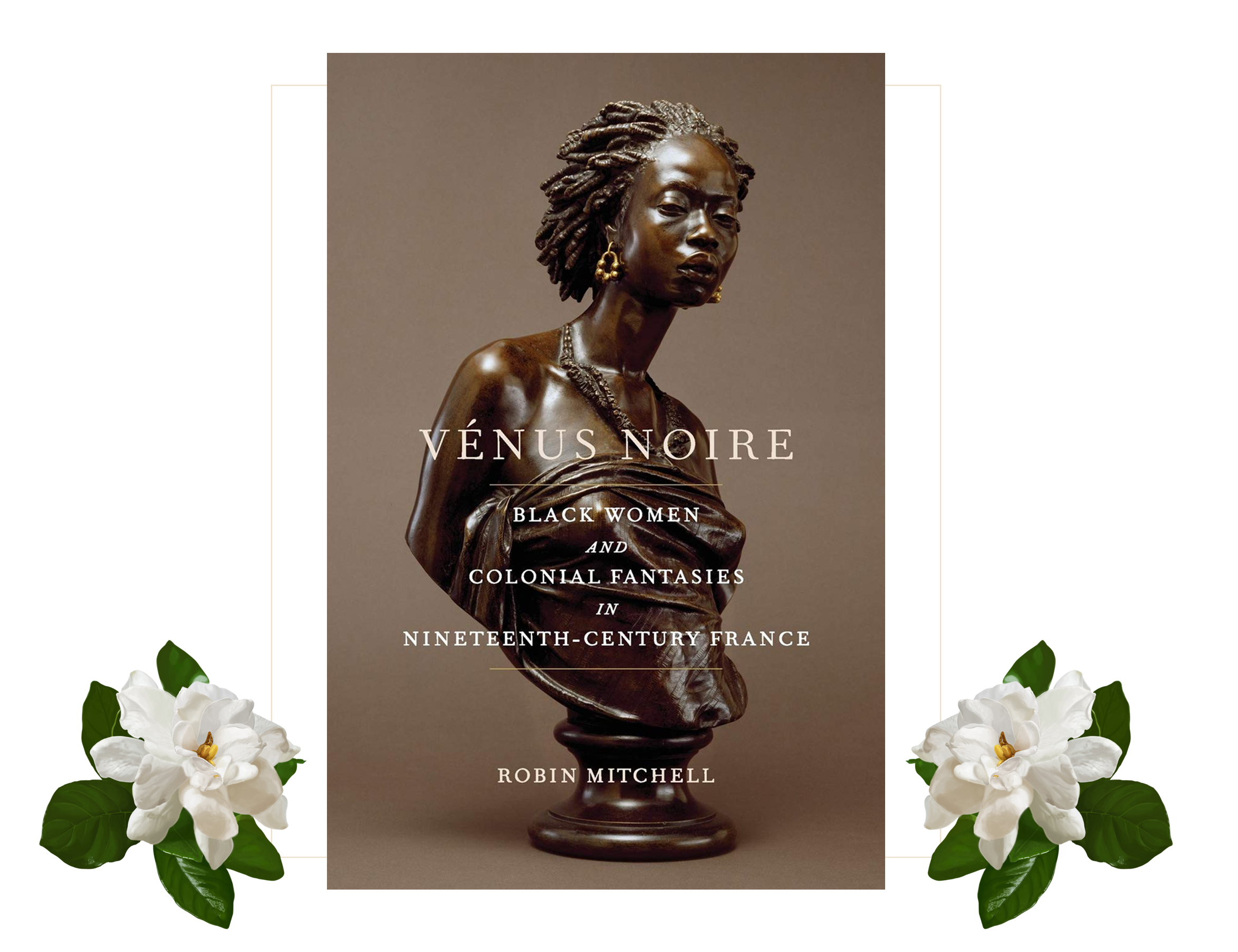Vénus Noire
Black Women and Colonial Fantasies in Nineteenth-Century France
Even though there were relatively few people of color in postrevolutionary France, images of and discussions about black women in particular appeared repeatedly in a variety of French cultural sectors and social milieus. In Vénus Noire, Robin Mitchell shows how these literary and visual depictions of black women helped to shape the country's postrevolutionary national identity, particularly in response to the trauma of the French defeat in the Haitian Revolution.
Vénus Noire Teaching Guide
If you are planning on teaching this book in the classroom or would simply like to take a look - Vénus Noire has its own project page, lesson plans, and teaching guides!
Reviews of Vénus Noire
“Based on extensive research in primary sources, Vénus Noire is a groundbreaking study of how, despite their relatively few numbers in metropolitan France, black women were weighted with powerful symbolic valence. French writers, scientists, and artists all depicted black women as sexualized, mysterious, and uncontrollable ‘others,’ thus burdening actual black women with living their lives in tension with these stereotypes. Mitchell brings to life the biographies of three particularly well-documented black women, while deconstructing artistic and literary icons of many more, to show how French discourse produced race and gender from the Revolution and Napoleonic era through the Second Empire. Haunting, breathtaking, and riveting, this book will linger in your mind long after you close its pages.”
— Sue Peabody, author of Madeleine’s Children: Family, Freedom, Secrets, and Lies in France’s Indian Ocean Colonies
“The book is a triumph not only because it shows how narratives around black women’s bodies have evolved, but because Mitchell unashamedly makes the personal political.”
— Katie Lister, The Guardian
“Mitchell's research is rigorous and presented in a riveting way. Indeed, Vénus Noire is essential reading for any historian of eighteenth- and nineteenth-century France, as well as history enthusiasts.”
— The Society for the History of Collecting
“The approach Robin Mitchell employs in Vénus Noire meaningfully shifts the scholarly debate over the portrayal of black women in the nineteenth century away from the frame of abolitionism and towards a critical genealogy of white colonial fantasies.”
-Nathan H. Dize, Vanderbilt University
“Vénus Noire, apart from breaking this reader’s heart, attests to the ongoing significance of the relational, intersectional approach in the study of European empire.
— Gloria Wekker, New West Indian Guide
“By demonstrating the points of intersection and parallel between these Black women’s stories, Mitchell illuminates the ongoing contentiousness that undergirded France’s relationship to Black subjectivity and Black sexuality in an era marked and striated by slavery and its abolition.”
— H. Adlai Murdoch, H-Net France Forum
Press for Vénus Noire
Diacritics Journal: Practicing Vulnerability: Reading Robin Mitchell’s Vénus Noire and Barbara Christian’s “The Race for Theory” Together
Black Perspectives: Black Women in Nineteenth-Century France: An Interview with Historian Robin Mitchell
New Books Network: Vénus Noire: Black Women and Colonial Fantasies in Nineteenth-Century France












